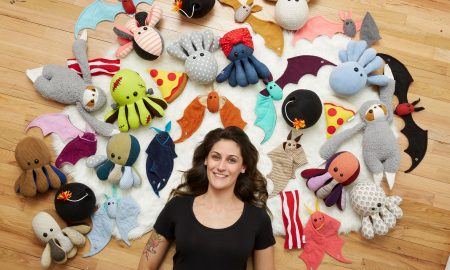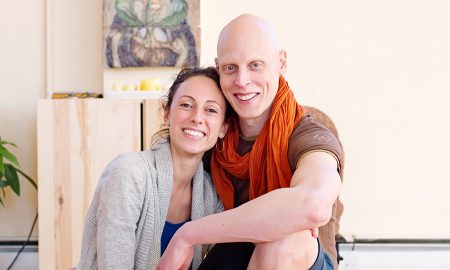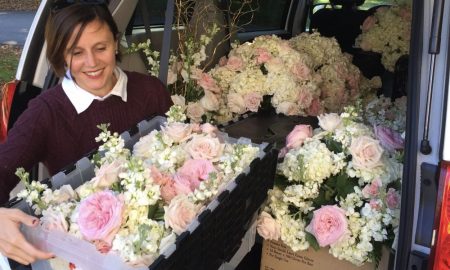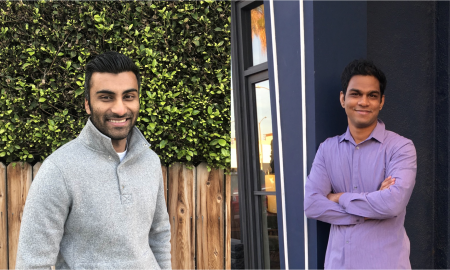

Today we’d like to introduce you to Chien-Chi Huang.
So, before we jump into specific questions about the business, why don’t you give us some details about you and your story.
I was diagnosed with triple negative breast cancer at age 40. I was shocked when given the bad news because I just had a mammogram a few months ago. I later learned that Asian women have denser breast tissue, which is why the regular mammogram could not detect the tumor. I was even more surprised to learn that many Asian American women I knew had breast cancer, but nobody talked about it.
In fact, breast cancer is the most commonly diagnosed cancer among Asian American women. Yet when compared to other racial groups, Asian American women have the lowest screening service utilization rate. Language and cultural barriers often prevent people from seeking proper, timely treatment and support, which have a great impact on the survival outcomes.
Many still suffer in silence, feeling isolated and stigmatized.
Cancer is a subject no one wants to talk about, and it is especially hard for Asian Americans to come forward and speak about it. Therefore, it is extremely important for people to see others who beat the disease and hear about the resources available in the community.
I am very grateful that I have the second chance to live a productive life. I believe we can save lives by educating and retaining Asian American women for early detection services. I understand that personal stories can be a powerful tool to change people’s perception, attitude and behaviors. These two beliefs inspired me to create the Asian Breast Cancer (ABC) Project in 2010 to train bilingual, bi-cultural Asian women to deliver breast health workshops in Mandarin, Cantonese and Vietnamese.
We also organize social and educational events for survivors and their loved ones. Our signature benefit fashion show, CelebrASIANS, is an uplifting event that celebrates the resilience and courage of Asian cancer and/or trauma survivors while showcasing the creations of Asian designers. This year Boston Medical Center will host the event at the Shapiro Building’s Atrium on Friday, October 27th from 7-9 p.m. The event will also include a silent auction, raffles, henna tattoos and complimentary facial gift cards for all guests. More information can be found at: https://2017celebrasians.eventbrite.com
Has it been a smooth road?
Looking back, the most terrifying thing that happened during my cancer journey was not losing my hair, my breast or my life – it was losing my mind!
I experienced paranoia and delirium, rare side-effects of the steroid Prednisone, during my cancer treatment. I thought my in-laws’ refusal to accept meals and carpool offers from neighbors and friends was their way of intentionally isolating me from the outside world because they were ashamed of me. At one point, I thought my husband was conspiring with my in-laws to kill me and I wanted him to be removed from my Health Care Proxy. I was extremely depressed for almost a year before I slowly dug myself out. I realized that when I stop focusing on my own suffering and start helping others, the healing begins and I feel blessed and empowered.
That is the reason why I am so passionate about peer support and mental health.
With the support of a group of dedicated Asian women, Asian Women for Health was established in November 2012 to build upon the success of the Asian Breast Cancer Project and eventually became a 501 (c) 3 nonprofit.
Although we do great work with limited resources, we rely heavily on the goodwill of our volunteers and in-kind support. Our working board is young and committed. We are working to strengthen the infrastructure and programs to diversify revenue streams without depending on grants and donations.
So let’s switch gears a bit and go into the Asian Women for Health story. Tell us more about the business.
Asian Women for Health (AWFH) is a peer-led, community-based nonprofit organization dedicated to advancing Asian women’s health and wellness through education, advocacy and support.
Cultural and language barriers prevent Asian women from seeking timely services and support, resulting in poor health outcomes and huge health care costs. We train bilingual, bicultural Asian women to be peer health educators and wellness coaches to increase health literacy and share resources with at-risk and under-served fellow Asian women. We empower Asian women to dispel myths, reduce disparities and bring hope to others by sharing their experiences and health information.
We facilitate systemic changes in the delivery of health care to Asian women by educating stakeholders about unmet needs and emerging issues through conferences and training. We are determined to break down service and issue silos that prevent medical and stakeholder communities from working together effectively through coalition building and collaborative efforts.
AWFH was the proud recipient of the inaugural Peter Lee Healthy Communities Award in 2013 at the Massachusetts Department of Public Health Ounce of Prevention Conference for its important and significant contributions to building healthy communities.
How do you think the industry will change over the next decade?
The 2010 Affordable Care Act has many important provisions designed to improve health outcomes, such as increased access to care and new integrated models of care. Unfortunately, current providers are unable to keep up with the growing need for culturally appropriate services, which has resulted in increased medical costs, severity of symptoms and poor health.
New, cost-efficient solutions lie within the communities.
Asian Women for Health (AWFH) is a thought leader and an innovative trailblazer in improving health and health care delivery. Building on our previous successes and partner network, AWFH will modify the 8-week, evidence-based “Achieving Whole Health” program to be gender-specific, accessible, and scalable through technology. We can maintain program fidelity while providing online support to transcend time and space restrictions. This will be a game changer since the peer recovery movement is leading the way to bridge service gaps and provide jobs for those with lived experience. Program participants learn how to set and maintain personal health goals with peer support. We are no longer a disease-specific program; our goal is to instill the culture of health through role modeling and experiential activities. Together, we will help each other practice self-care so we can improve the health of our community!
Pricing:
- You can support Asian Women for Health by making a donation as generously as you can. $25 will pay for food/snack for one workshop.
- $50 will pay for one participant to take one workshop
- $100 will pay for one wellness coach to facilitate one workshop
Contact Info:
- Address: 83 Wallace Street
Somerville, MA 02144 - Website: Asian Women for Health, Inc
- Phone: 617-767-1071
- Email: cch@asianwomenforhealth.org
- Facebook: Www.facebook.com/Asianwomenforhealth
- Twitter: @AWforhealth
- Other: Www.TeamAsianMinds.org








Image Credit:
From top left to right: Annual Conference, Herbal workshop, TEAM Outreach at ASPIRE Conference, Achieving Whole Health Graduation at Roxbury Tenants at Harvard, QPR Suicide Prevention Training, Wellness Workshop at Dana Fraber, CelebrASIANS Benefit Fashion Show, ABC Project Outreach in Chinatown
Getting in touch: BostonVoyager is built on recommendations from the community; it’s how we uncover hidden gems, so if you know someone who deserves recognition please let us know here.


















Carmenza Bruff
October 4, 2017 at 3:53 pm
I eed to reach out to Chien Chi Huang … My telephone number is 1-617-785-0314